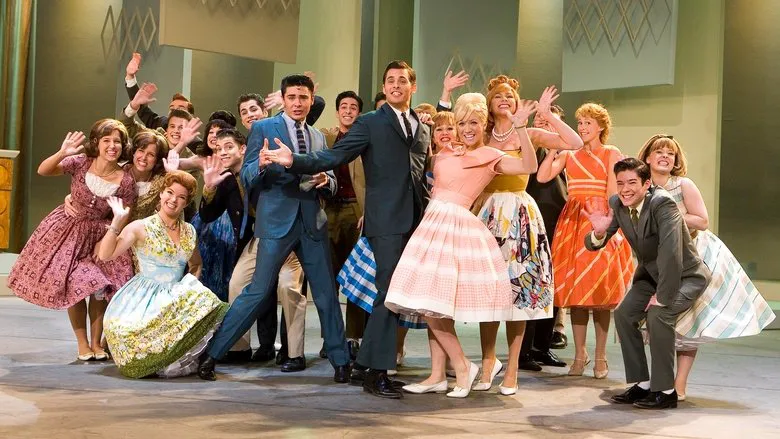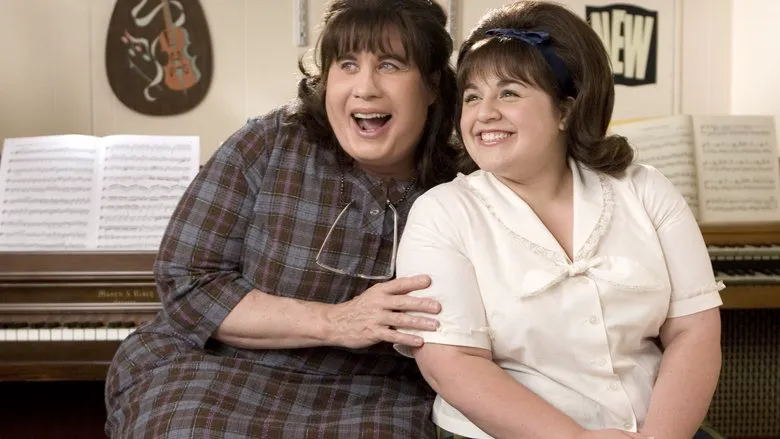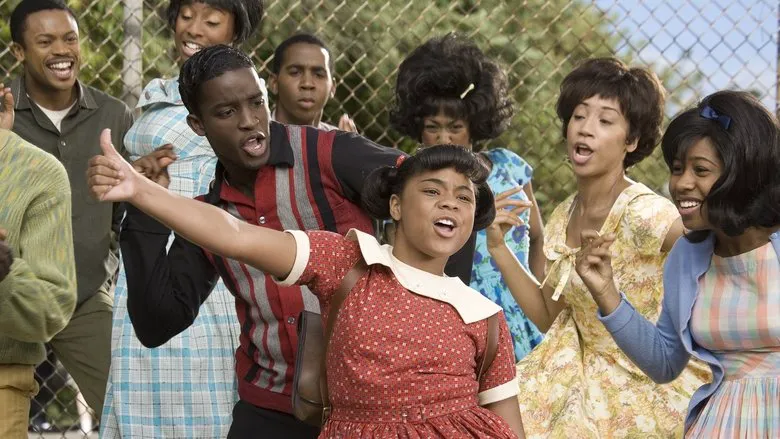Hairspray: A Blast from the Past with a Modern Twist

Musicals occupy a unique space in cinema, diverging from conventional filmmaking and realism. They operate on a different plane of perception, forging a connection with the audience that leans more towards music and spectacle than traditional drama.
The plot in a musical often glides over the surface of life, seizing upon recognizable elements of real-world issues. It uses these as a foundation for song and dance, allowing the music to elevate the narrative. Ultimately, the music leaves the audience with the firm conviction that evil has been vanquished and good will reign supreme. This is no small feat, contributing to both our well-being and the progress of society.
A Familiar Tale, Freshly Delivered
The plot of “Hairspray” (2007) is as straightforward as its title, which might deter some viewers. However, overlooking it would mean missing a charming experience. The story, deeply rooted in American culture, resonates with contemporary audiences. Tracy, a spirited 19-year-old, possesses talent and charisma, excelling in singing and dancing. However, she and her mother, Edna, struggle with their weight. The film tackles the myth of inadequacy associated with being overweight. Tracy wins the heart of the most popular boy in school, becomes a star on a local television show, and wins over the city of Baltimore.
A Visual and Auditory Feast
“Hairspray” offers a delightful spectacle. Musicals can be broadly categorized into two types: those that adhere to realism, where singing and dancing are confined to the stage, and those that disregard realism, where the entire world becomes a stage. “Hairspray” embraces the latter approach, with music flowing almost continuously and the characters’ vitality overflowing into the world. The film is characterized by dazzling smiles, flawless skin, and perfectly coiffed hair. It’s a celebration of glamour. Those who dislike this aesthetic should steer clear, while those who enjoy it will leave feeling uplifted.

Interestingly, the film subverts expectations. While the 1988 version cast the drag queen Divine as Edna, the 2007 version features John Travolta in the role. This shift moves away from the sensational and towards a more artistically nuanced portrayal.
More Than Just Entertainment
Musicals often tackle significant themes. “Cabaret” (1972) offered a psychological exploration of the rise of fascism. “Hairspray” celebrates a society shedding racism and political paranoia. It recalls a time when African Americans fought for equality and politicians undermined freedom of speech. Queen Latifah, playing the leader of the black community, exudes dignity. The protest march of African Americans, excluded from local television, is a powerful display of political expression.
The film also addresses censorship. While society strives for inclusivity, figures like the television station director (Michelle Pfeiffer) perpetuate prejudice. However, progressive individuals within the television industry champion change, leading to a victory for inclusivity. The film’s portrayal of the defeat of censorship is truly applaudable.
A Film for Everyone
“Hairspray” appeals to a wide audience. It includes humor that will elicit laughter, as well as excellent music inspired by the twist era and early rock. The film’s energy is infectious, and it features memorable duets. The filmmakers express a strong belief that racial tensions and body image issues are a thing of the past.

The film suggests that equality, brotherhood, and uncensored freedom have been achieved, while we still strive for them.